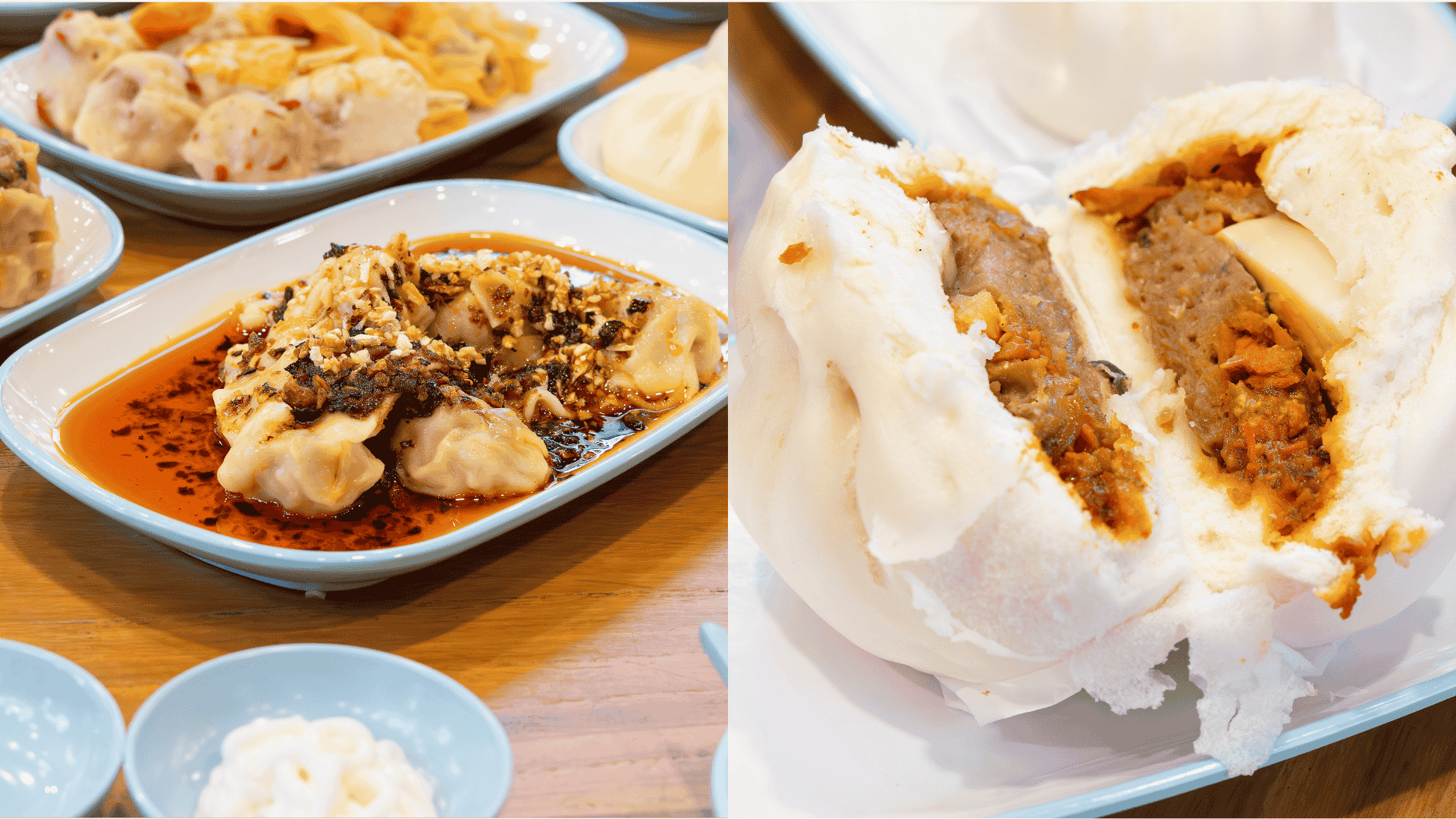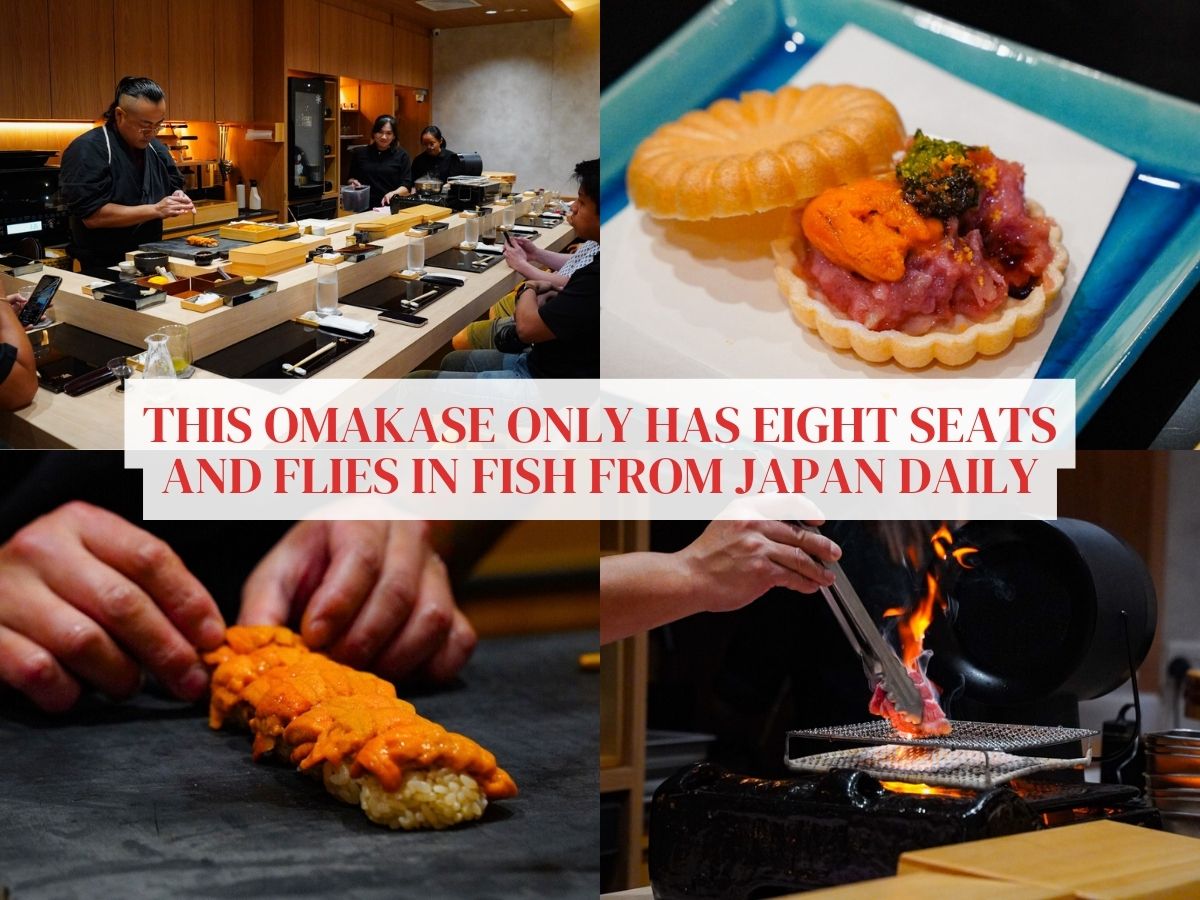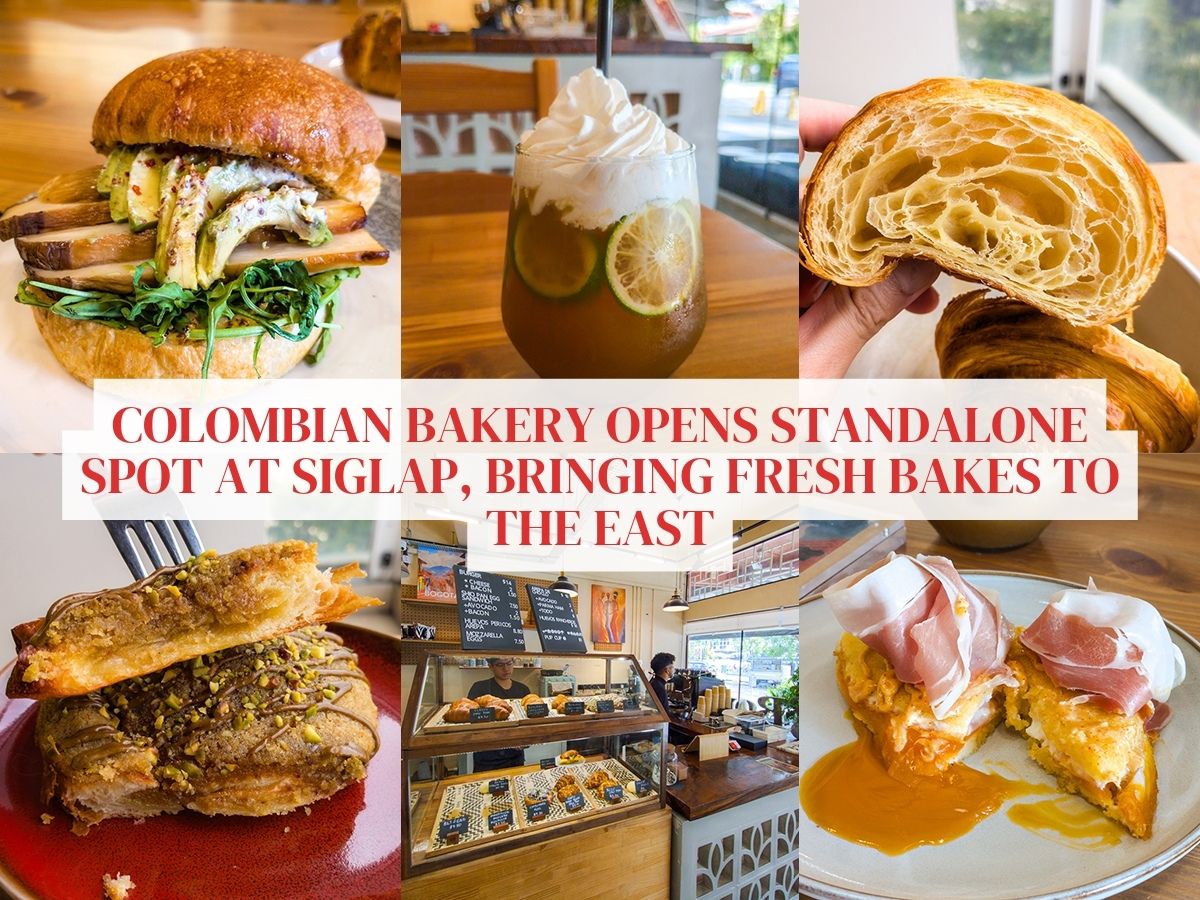Warung Dimsum: Muslim-owned dim sum stall in Yishun supports youths-at-risk
Warung Dimsum is a newly opened Muslim-owned dim sum stall tucked inside Kedai Kopi food court at Yishun Central. Opened in July, the three-month-old stall serves an array of halal pau and dumplings, and doubles as a training ground for at-risk youths.
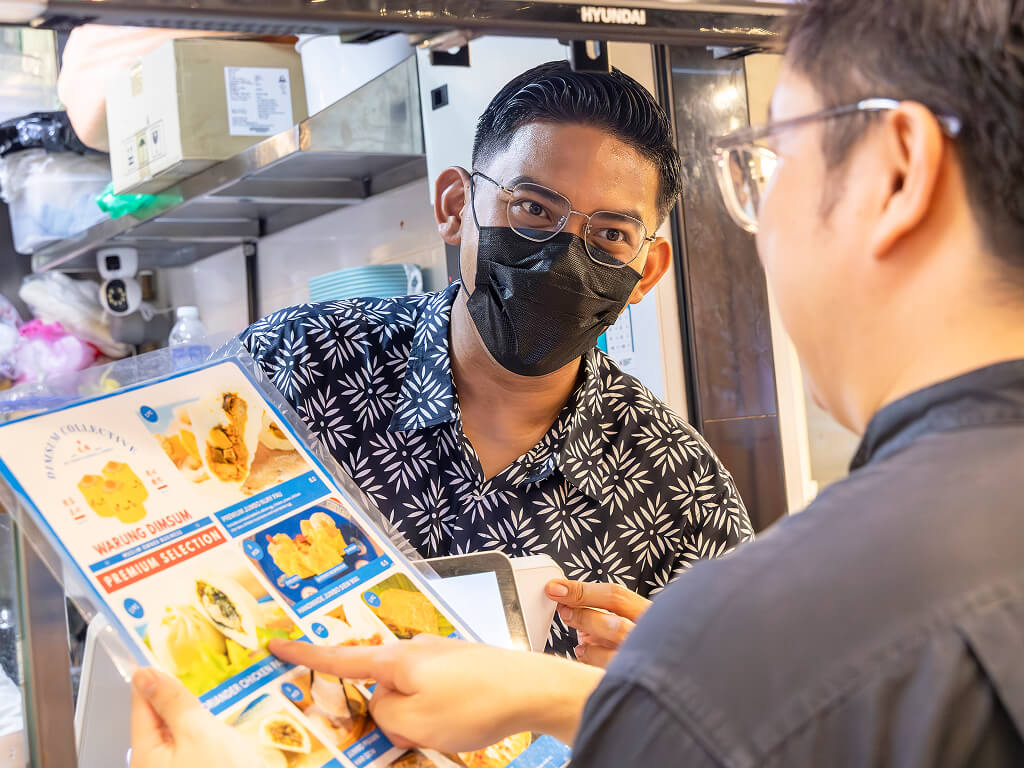
Its founder, 24-year-old Imran Mean, grew up loving dim sum on family trips to Johor Bahru and Batam. He remembers the steam rising from bamboo baskets and the bite of prawn siu mai against chilli.
In Singapore, the search for halal dim sum was harder, he says, which is what prompted him to start something of his own.
“I’m a dim sum lover,” he confesses.
What is Warung?
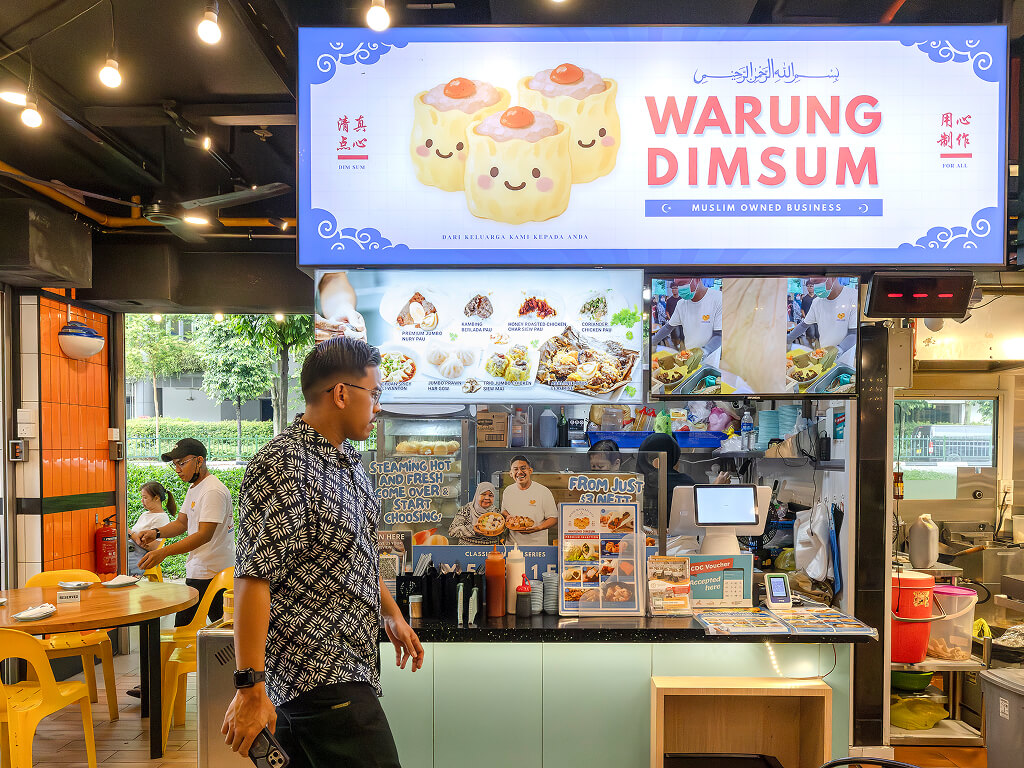
The word “warung” comes from Bahasa Indonesia and refers to a small shop often found along village roadsides. The stall, set inside a coffeeshop in Yishun, right by the roadside, takes the name quite literally.
The food at Warung Dimsum is supplied by Nury Dian Xin Delight, which produces halal pau and dumplings from its factory. The company says its dim sum are handmade fresh daily before being delivered to the stall, where items are steamed and fried onsite.
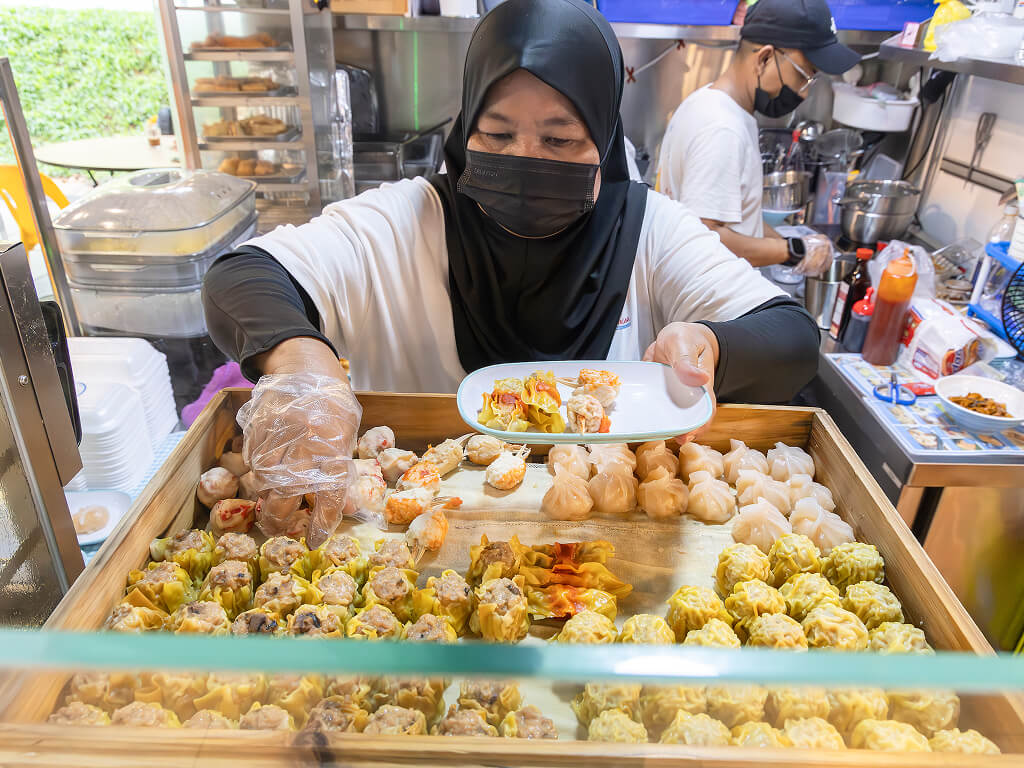
“This is also a new venture for me,” Imran says. “I have never done a hawker venture before. I want to try something new and also to provide opportunities to my youths.”
Becoming a social entrepreneur
Before starting his own ventures, Imran faced challenges in school and at home.
He was bullied in Secondary 1, which left him homebound for months and skipping examinations. A transfer to Woodlands Secondary School later gave him a fresh start, where teachers encouraged him to take up leadership roles and thereafter, be involved in community initiatives.
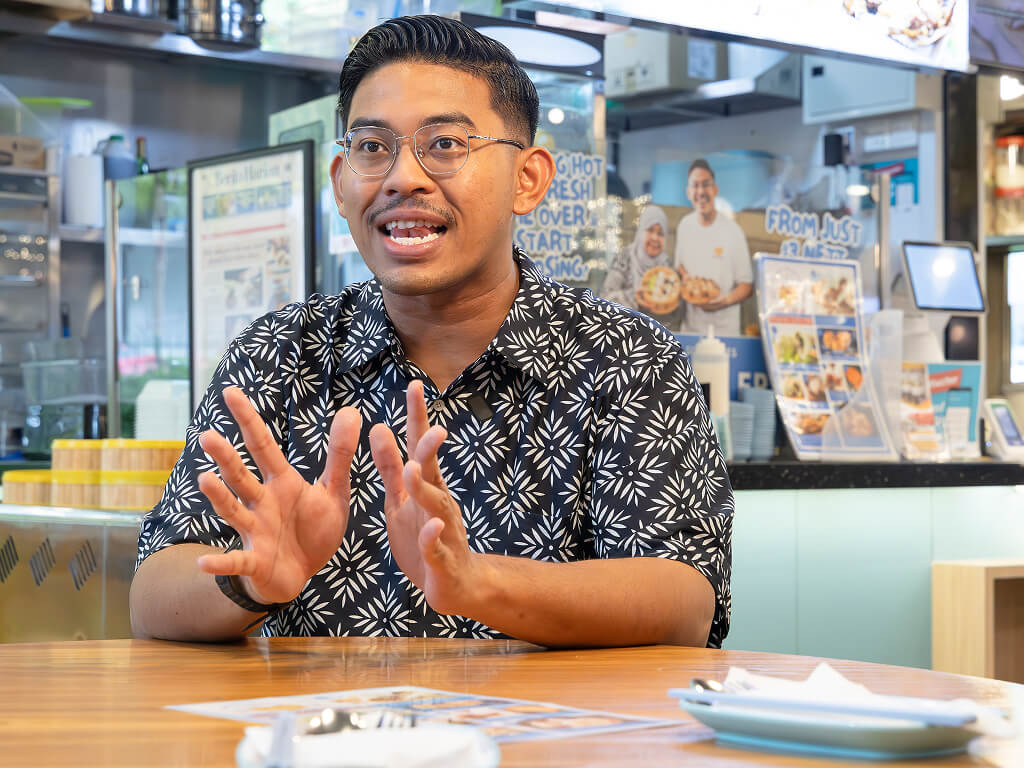
At home, his family also went through periods of instability. When they moved back from Johor Bahru in 2017, they did not have a flat of their own and relied on temporary housing before securing a rental unit. To help out, Imran took on odd jobs and tried small ventures while in school, such as selling fried Oreos to classmates. Those early experiments grew into SignaturesofImran Group International, the social enterprise he runs today.
The company, which provides services such as cleaning, transportation, and manpower support, has generated mid-six-figure revenue annually and even provided manpower for large events, including the UOB Heartbeat Run.
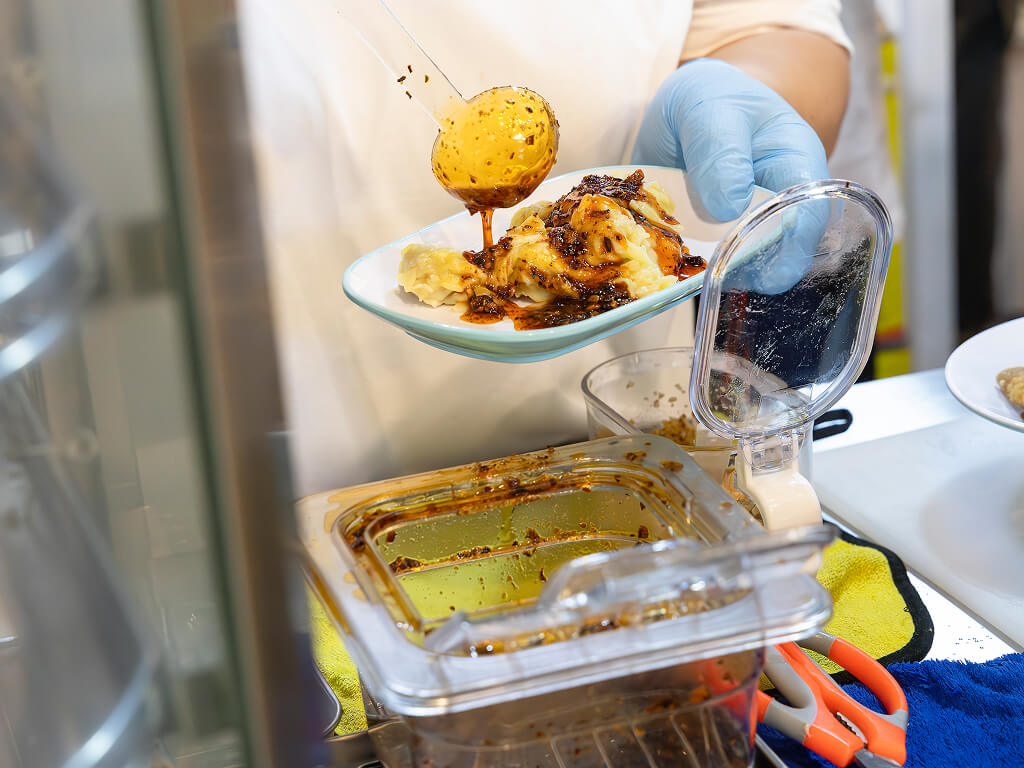
Part of the profits is set aside to fund activities at his other non-profit IM Volunteers Network. It boasts 390 registered volunteers, of which 30% are youths from troubled backgrounds who have been referred by social service agencies. These activities run the gamut from distributing food rations to needy families, to beach or school clean-ups.
“Never try, never know,” the Singaporean Gen-Z says. “Everything that I do, I will always try first. If I fail, I just stand up and redo again.”
The folks at Warung Dimsum
Imran’s mother manages half-days on weekdays, but much of the daily work is carried out by nine youths he has hired: Two full-time and seven part-time.
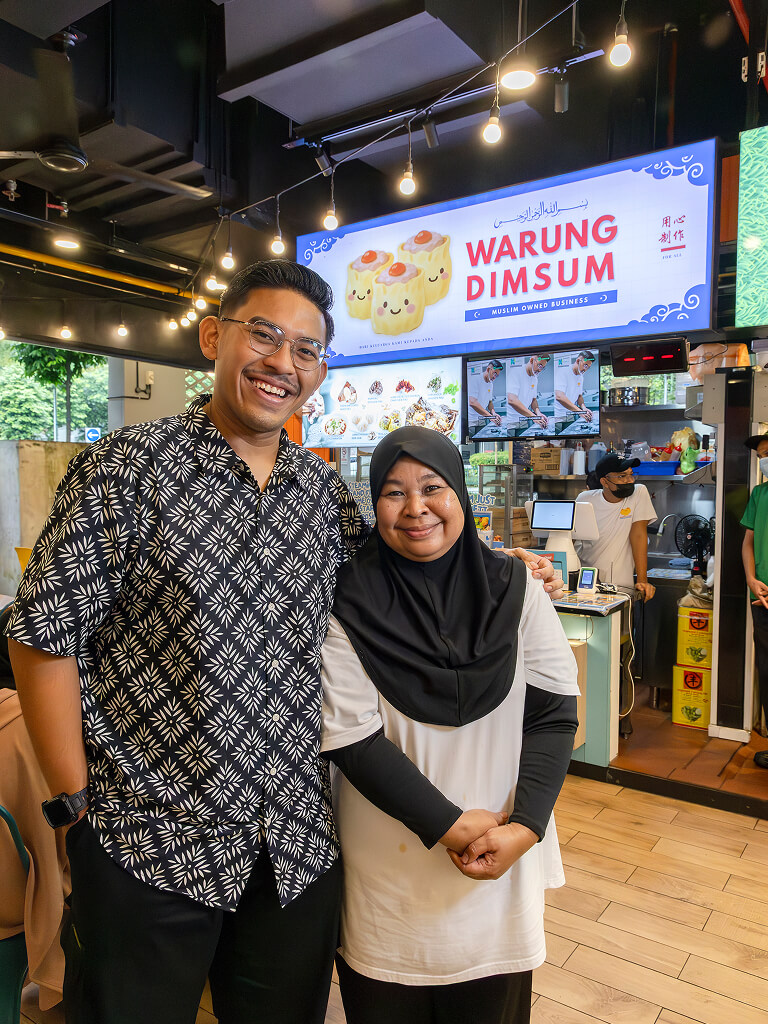
The social enterprise hawker venture gives these young people, many from difficult family situations — with divorced or incarcerated parents, or households struggling financially — a chance to earn an income and pick up skills.
“We want them to explore opportunities outside and gain some work experience,” says Imran.
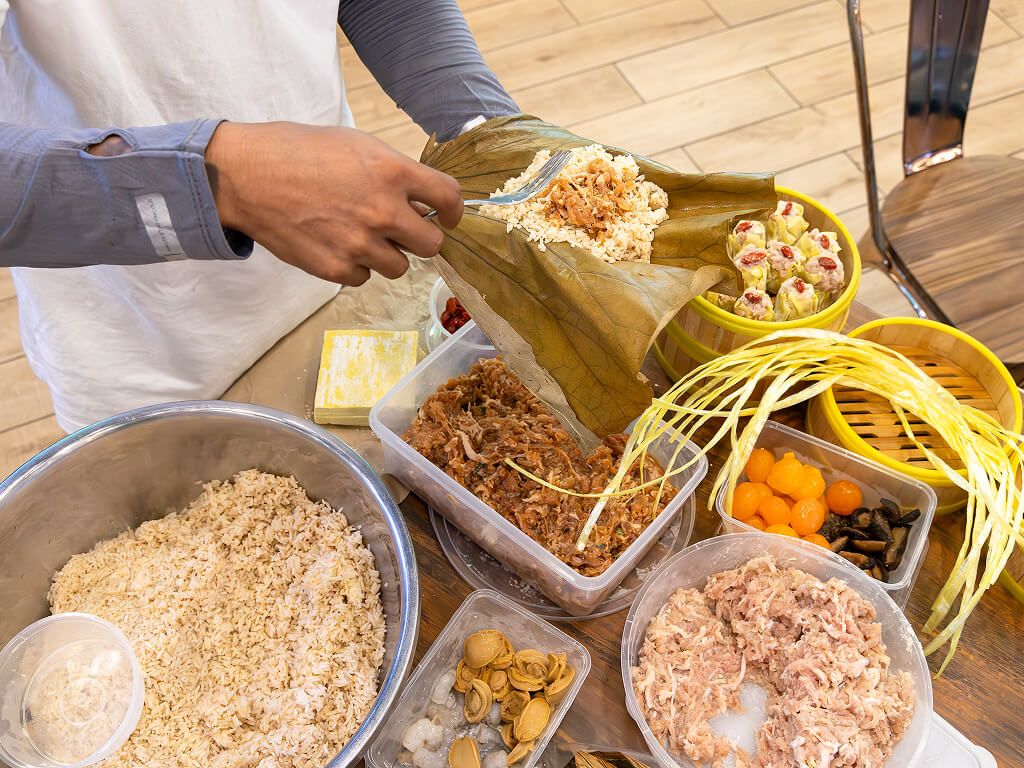
The youths rotate tasks such as steaming, frying, cashiering, serving, and cleaning. Some of them, he adds, have been especially motivated.
One youth, for instance, is saving his wages to pay for driving lessons, a goal he hopes to achieve by the end of the year. Another youth shared that he now has a resume to apply for jobs with in the future.
“Knowing that we help them really heartens me,” he says.
What we tried at Warung Dimsum
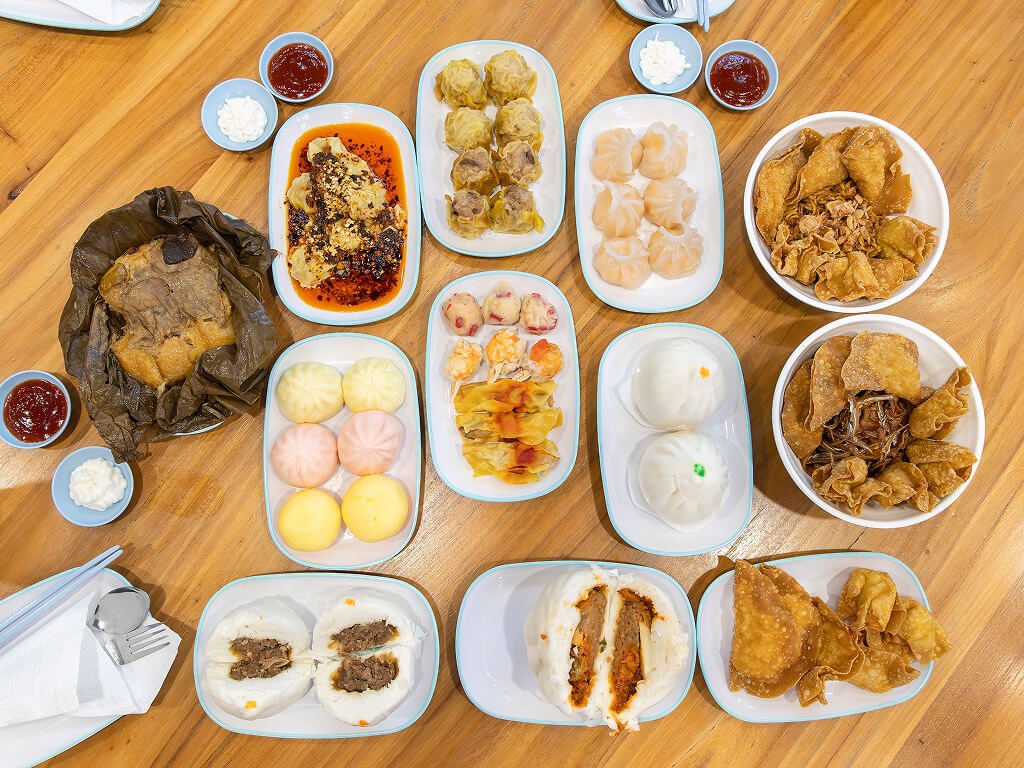
There are more than 20 varieties to choose from at Warung Dimsum.
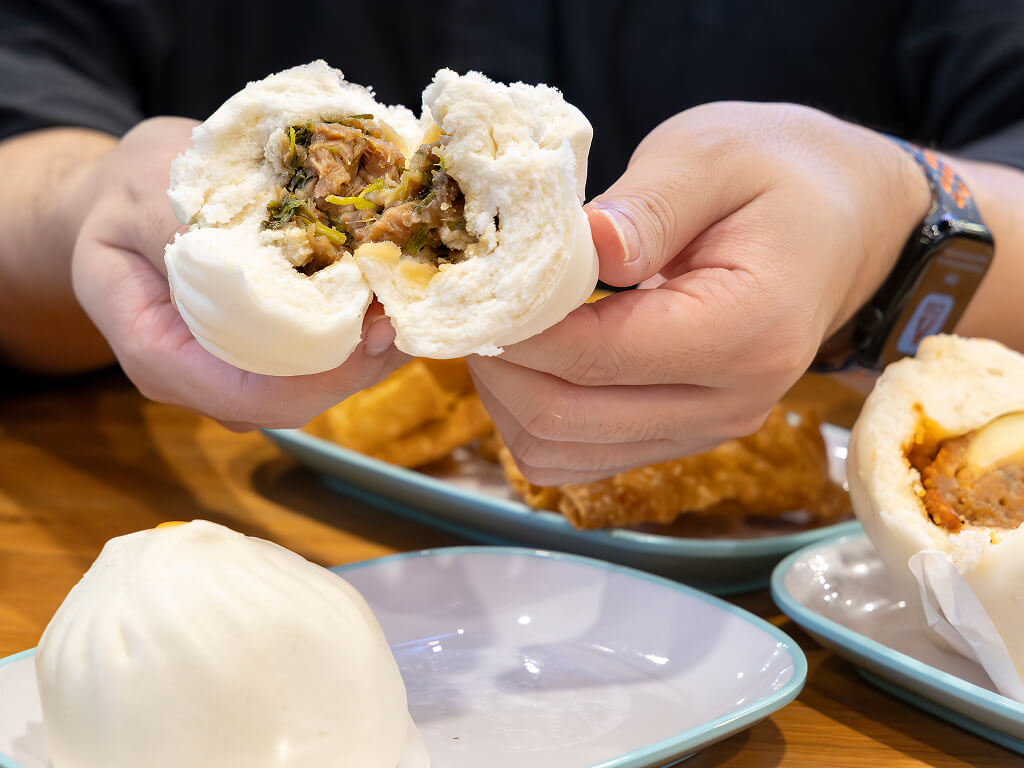
A controversial choice, but we love this. The coriander chicken pau (S$5.50) is soft and fluffy, with the herb adding brightness to the savoury chicken filling. Get this.
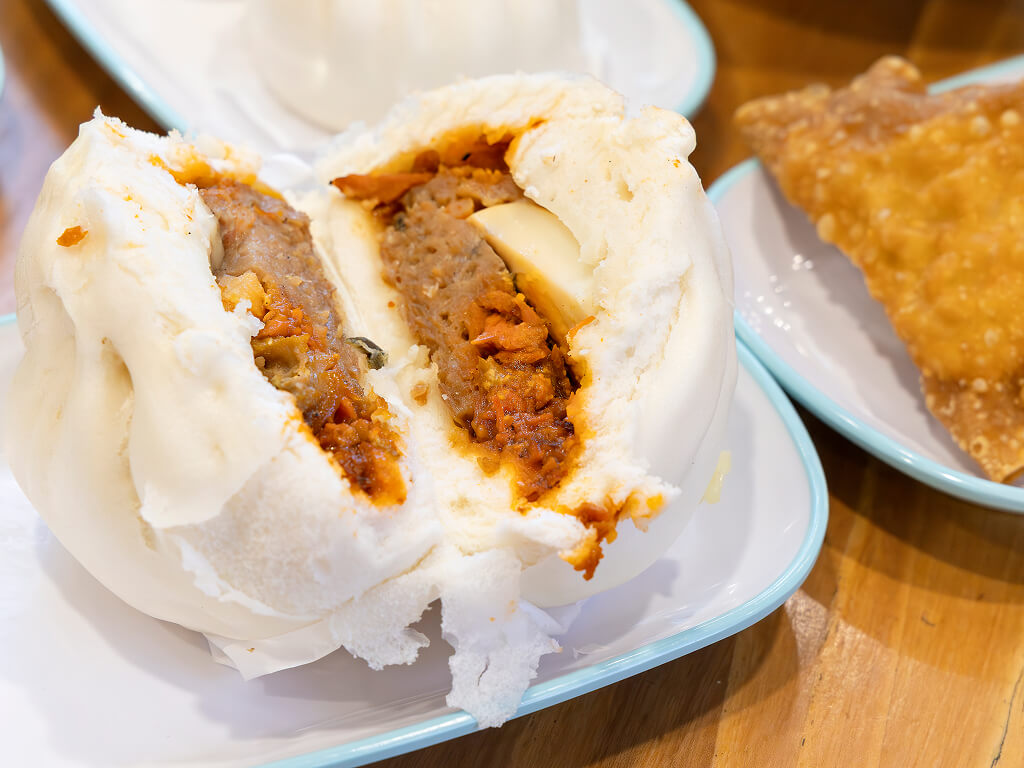
The premium jumbo Nury pau (S$8) is as big as the palm of your hand, packed with a long list of ingredients: Mini abalone, half a hard-boiled egg, salted egg yolk, char siew chicken, prawn, minced beef and shiitake mushroom.
While impressive in size and variety, it feels like there is too much going on inside. The mix of flavours jostles over each other, making it more novelty than must-order.
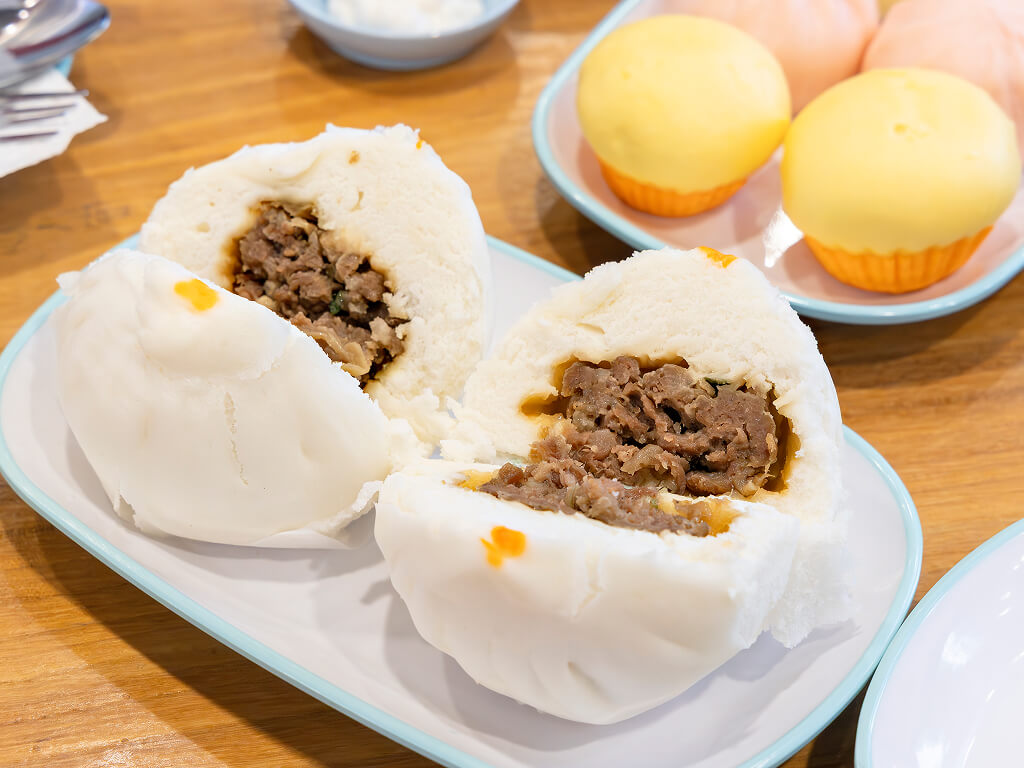
Pau kambing berlanda (S$5.50) comes with a more chewy, bouncy texture compared to the lighter classics. Inside, the bun encases a rich mutton filling that leans hearty and bold. It is a heavier option, best for those who enjoy stronger flavours.
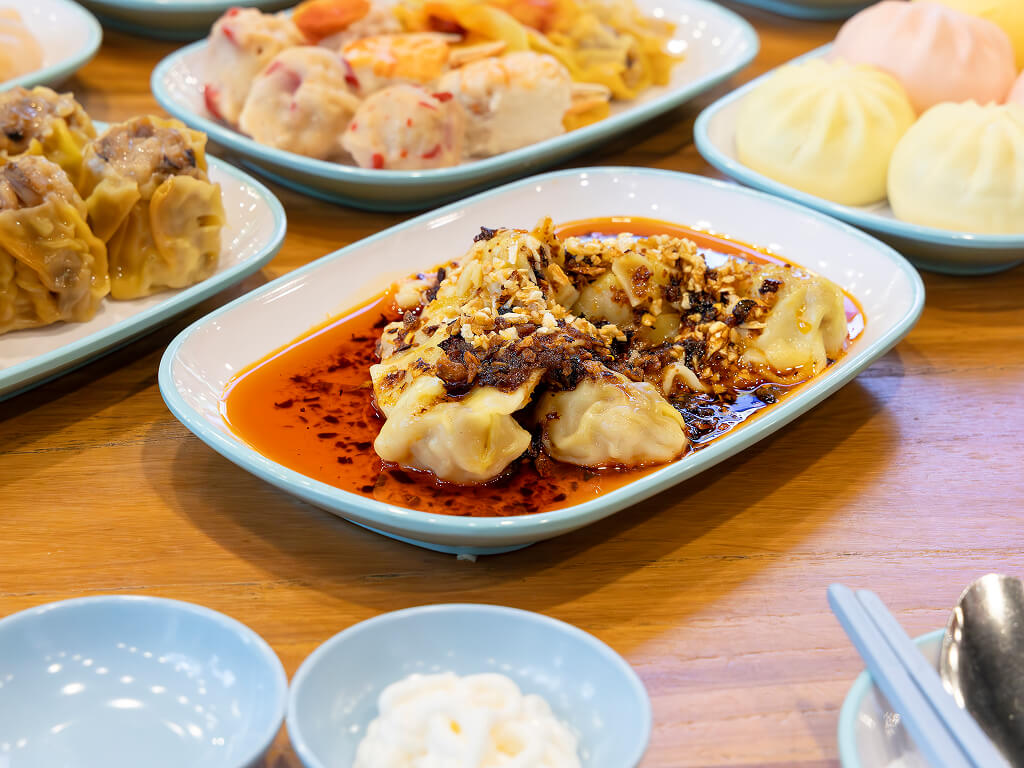
Sze Chuan spicy chilli oil wanton (S$7.50) arrives in a heap, the wrappers clinging together under a slick of chilli oil. The sambal-laced sauce leaned heavy, overwhelming what should have been a delicate bite.
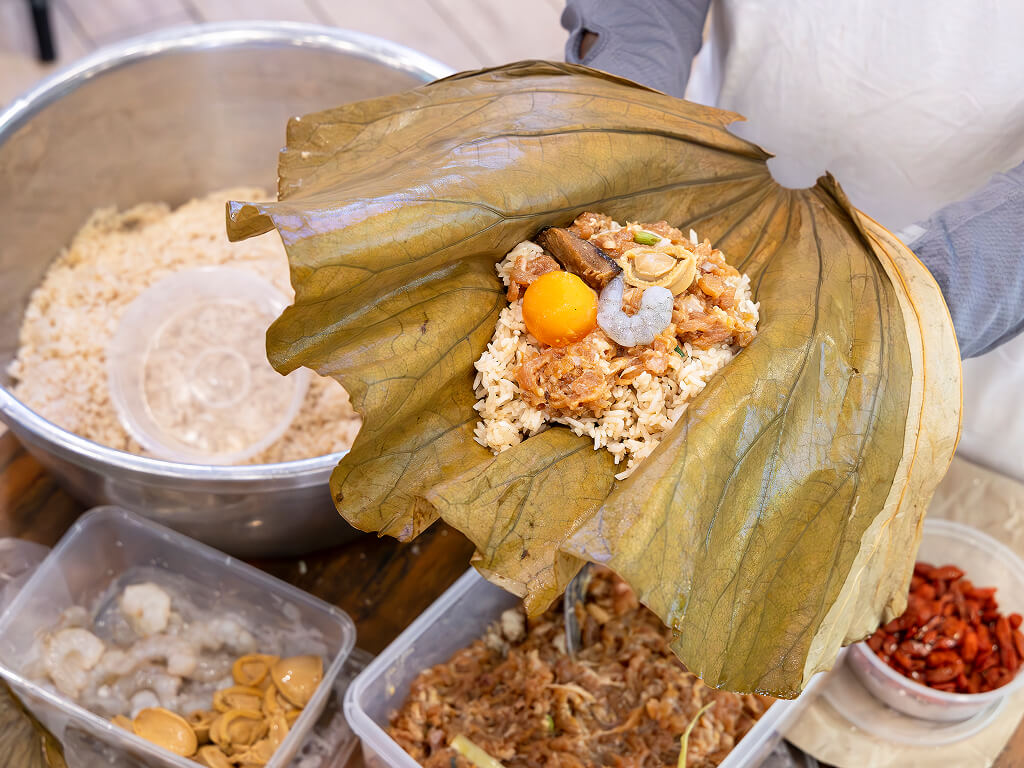
Like the premium jumbo Nury pau, the premium abalone lotus leaf rice (S$11) is lavishly described, featuring glutinous rice, abalone, prawn, shiitake mushroom, and salted egg yolk, all hand-wrapped in lotus leaf and subsequently steamed. The fillings are fine and even a little moreish, but the flavours are ordinary in a way that makes you notice the bill.
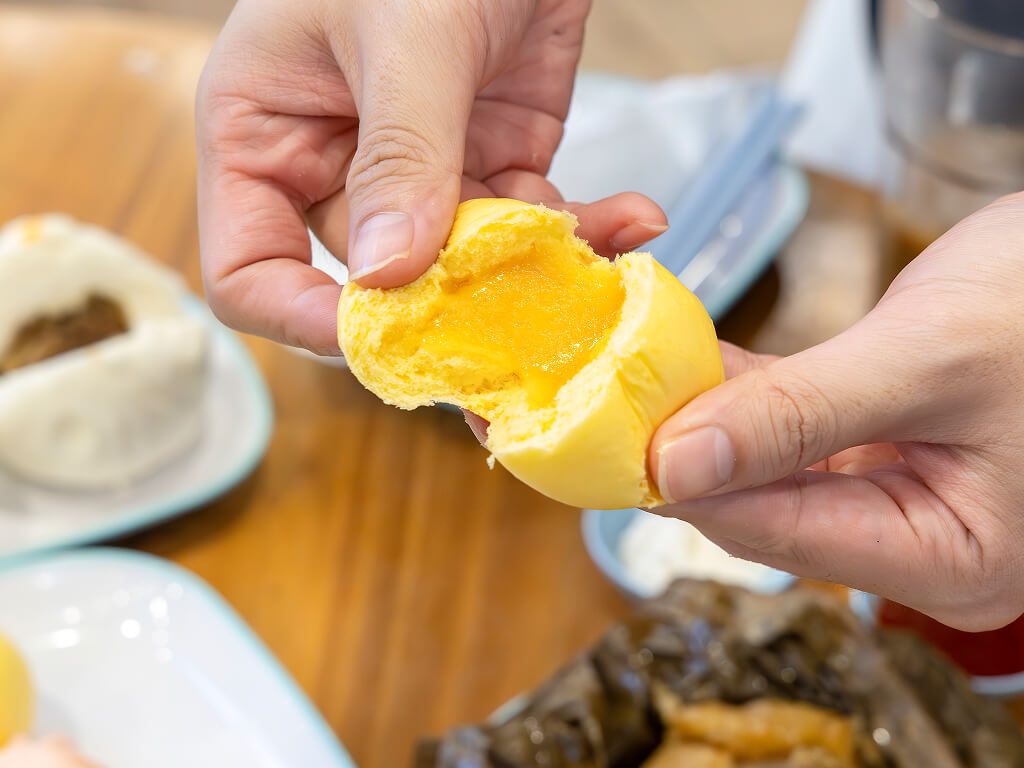
Nothing could go wrong with the quintessential dim sum classic: Salted egg buns (S$3 for two). These bright yellow buns split to reveal a molten centre that oozes out rich and sweet, making them one of the more satisfying picks on the menu.
With plans already in place to expand, Imran sees Warung Dimsum as just the beginning. For now, Yishun diners get a stall that pairs approachable halal dim sum with a mission to help youth find their way.
For more on what to eat, check out this new tofu stew specialist at Suntec City, or Clarke Quay’s latest acai spot.
Tue 9am - 8.30pm
Wed 9am - 8.30pm
Thurs 9am - 8.30pm
Fri 9am - 8.30pm
Sat 9am - 8.30pm
Sun 9am - 8.30pm
- Yishun
